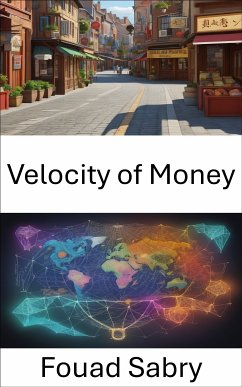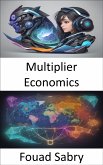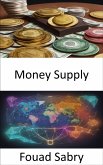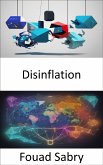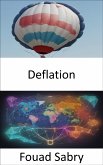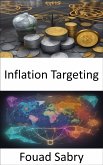What is Velocity of Money
The number of times that a single unit of currency is used to make purchases of goods and services within a specified amount of time is what is meant to be measured by the velocity of money. To put it another way, it refers to the number of times individuals exchange money. The idea establishes a connection between the level of economic activity and the amount of money that is available, and the rate at which money is exchanged is one of the factors that determines the level of inflation. The ratio of a country's gross national product (GNP) to its money supply is typically used as a measurement. This ratio is used to determine the velocity of money.
How you will benefit
(I) Insights, and validations about the following topics:
Chapter 1: Velocity of money
Chapter 2: Macroeconomics
Chapter 3: Supply and demand
Chapter 4: Inflation
Chapter 5: Deflation
Chapter 6: IS-LM model
Chapter 7: Rational expectations
Chapter 8: Phillips curve
Chapter 9: Money supply
Chapter 10: Aggregate demand
Chapter 11: Quantity theory of money
Chapter 12: Price level
Chapter 13: Mundell-Fleming model
Chapter 14: Equation of exchange
Chapter 15: Supply (economics)
Chapter 16: Demand for money
Chapter 17: Monetary inflation
Chapter 18: Baumol-Tobin model
Chapter 19: McCallum rule
Chapter 20: Monetary policy of the Philippines
Chapter 21: Induced demand
(II) Answering the public top questions about velocity of money.
(III) Real world examples for the usage of velocity of money in many fields.
Who this book is for
Professionals, undergraduate and graduate students, enthusiasts, hobbyists, and those who want to go beyond basic knowledge or information for any kind of Velocity of Money.
The number of times that a single unit of currency is used to make purchases of goods and services within a specified amount of time is what is meant to be measured by the velocity of money. To put it another way, it refers to the number of times individuals exchange money. The idea establishes a connection between the level of economic activity and the amount of money that is available, and the rate at which money is exchanged is one of the factors that determines the level of inflation. The ratio of a country's gross national product (GNP) to its money supply is typically used as a measurement. This ratio is used to determine the velocity of money.
How you will benefit
(I) Insights, and validations about the following topics:
Chapter 1: Velocity of money
Chapter 2: Macroeconomics
Chapter 3: Supply and demand
Chapter 4: Inflation
Chapter 5: Deflation
Chapter 6: IS-LM model
Chapter 7: Rational expectations
Chapter 8: Phillips curve
Chapter 9: Money supply
Chapter 10: Aggregate demand
Chapter 11: Quantity theory of money
Chapter 12: Price level
Chapter 13: Mundell-Fleming model
Chapter 14: Equation of exchange
Chapter 15: Supply (economics)
Chapter 16: Demand for money
Chapter 17: Monetary inflation
Chapter 18: Baumol-Tobin model
Chapter 19: McCallum rule
Chapter 20: Monetary policy of the Philippines
Chapter 21: Induced demand
(II) Answering the public top questions about velocity of money.
(III) Real world examples for the usage of velocity of money in many fields.
Who this book is for
Professionals, undergraduate and graduate students, enthusiasts, hobbyists, and those who want to go beyond basic knowledge or information for any kind of Velocity of Money.
Dieser Download kann aus rechtlichen Gründen nur mit Rechnungsadresse in A, B, BG, CY, CZ, D, DK, EW, E, FIN, F, GR, H, IRL, I, LT, L, LR, M, NL, PL, P, R, S, SLO, SK ausgeliefert werden.

